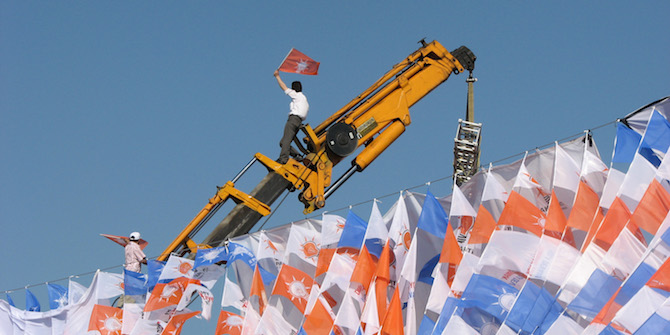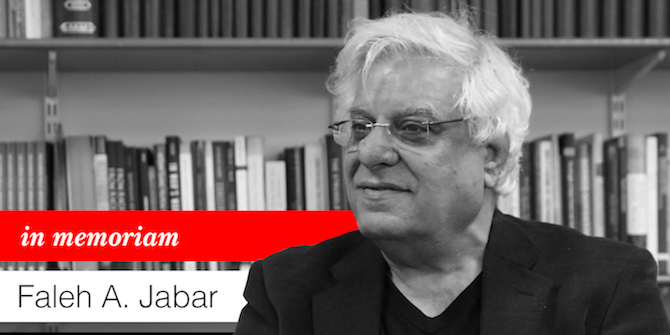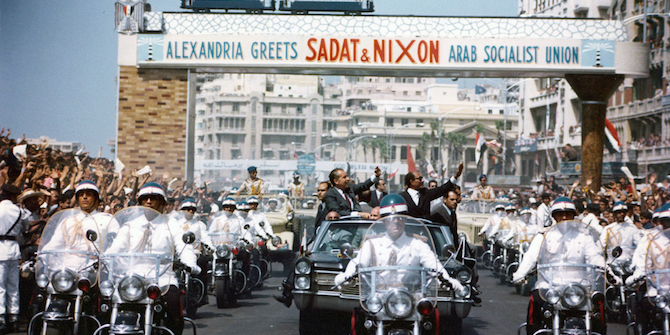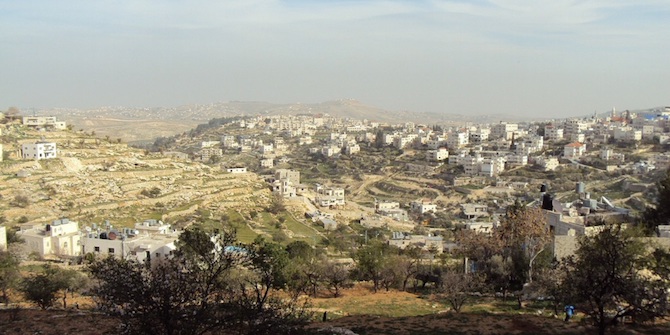by Sebastian Forkarth
Nationalism and nation-building are often seen as consequences of armed conflicts. On the long run, the process of shifting borders and populations in order to create ethnically homogenous spaces is widely neglected. Through my photography I abandon the sphere of day-to-day politics. Instead, I question the methods and symbols fostering the idea of a nation, asking how national memory is constructed, and which relationships can be drawn between (re)location and nation-building. On a global level, I deal with spaces that represent, legitimise and (re)construct features of a distinct national identity. Instead of looking at phenomena as exclusive regional processes, my work acknowledges similarities between different human communities relating to general principles of power, control and partisanship.
In 2014, I began focusing on the Kurdistan Region of Iraq (KR-I) within the conflicting reality of a seemingly homogenous geopolitical presence on the one hand, and a fabricated national identity on the other.
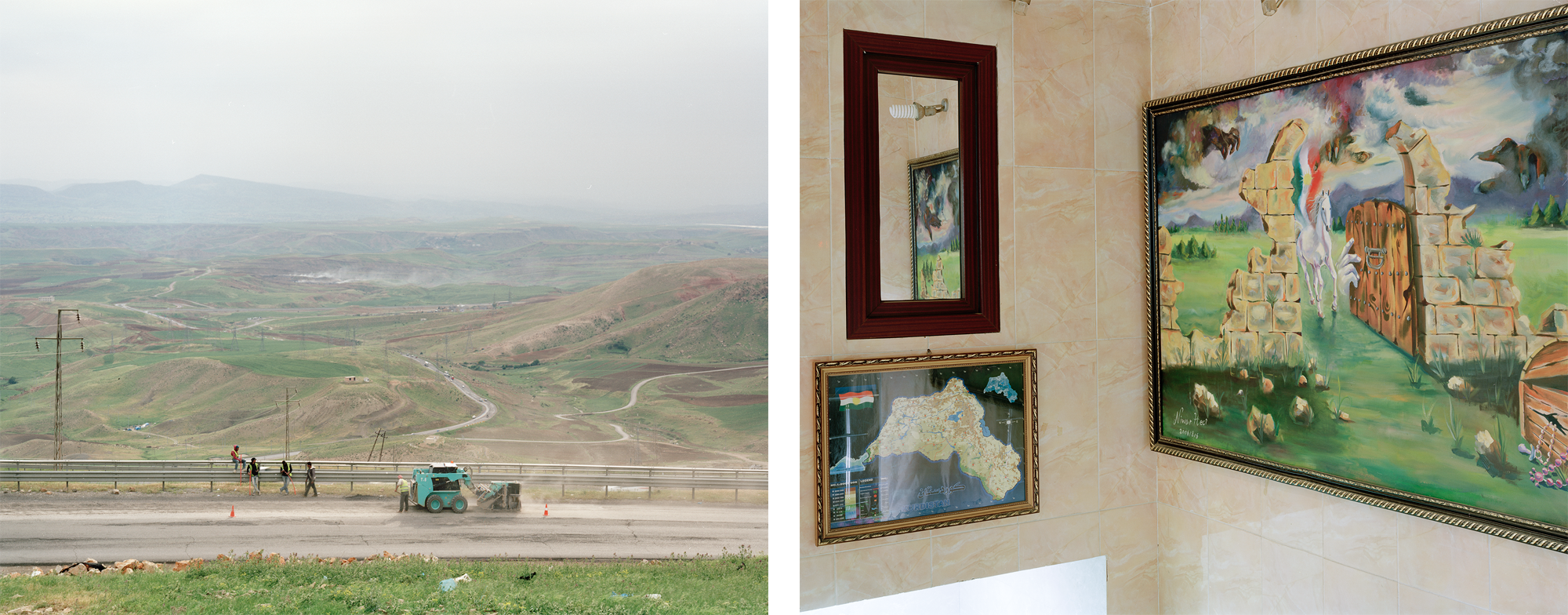
The body of work KR-I (Safe Haven) is located in the threshold of desired and constituted territory to illustrate significant symbols and visual narratives that are used to strengthen claims for national identity inside and outside of the KR-I. In this undefined borderland, the nation is build on the imagination of a human community that is linked through a shared history within an (ideal) territory.

In this context, natural sites are chosen by a nationalist movement to serve as the territorial foundation for a state to come, by claiming them as the people‘s historical heritage and future homeland. It is the legitimising relationship emanating from this place of mythological origin that leads to the political construction of urban space and identity.
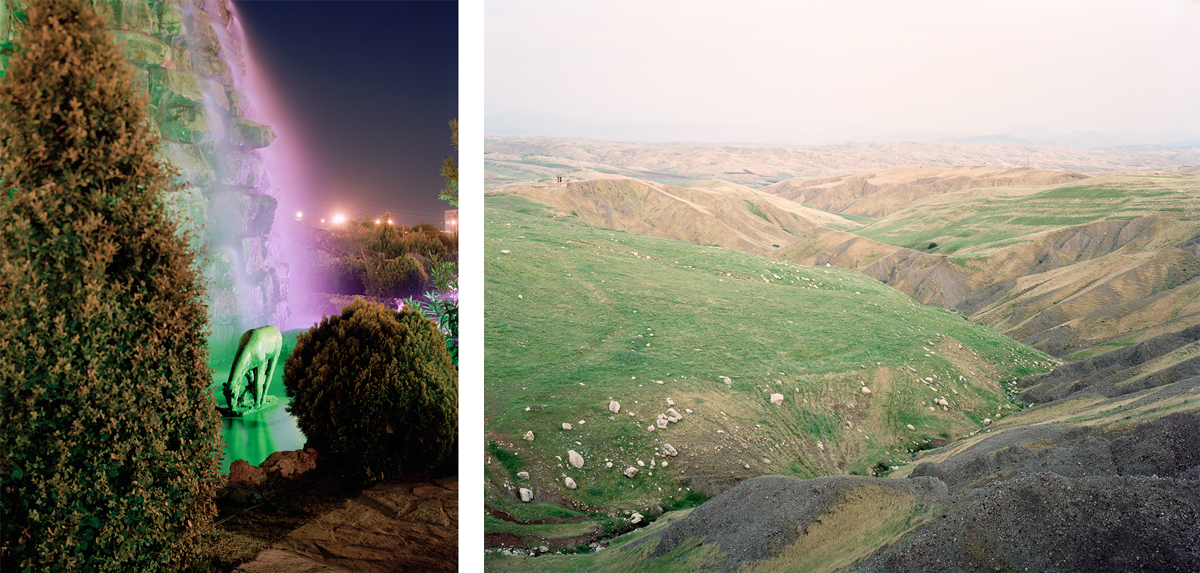
Settled on that idea, construction, while reflecting the region’s growth in confidence and its development since its constitutional autonomy since 2003, is never just passive or neutral. In this space, buildings become bodies that represent and carry the social and historical context of their environment. They are physical symbols of the circumstances that formed them, or that use them as a tool to not only erase, but also construct alternative memories.
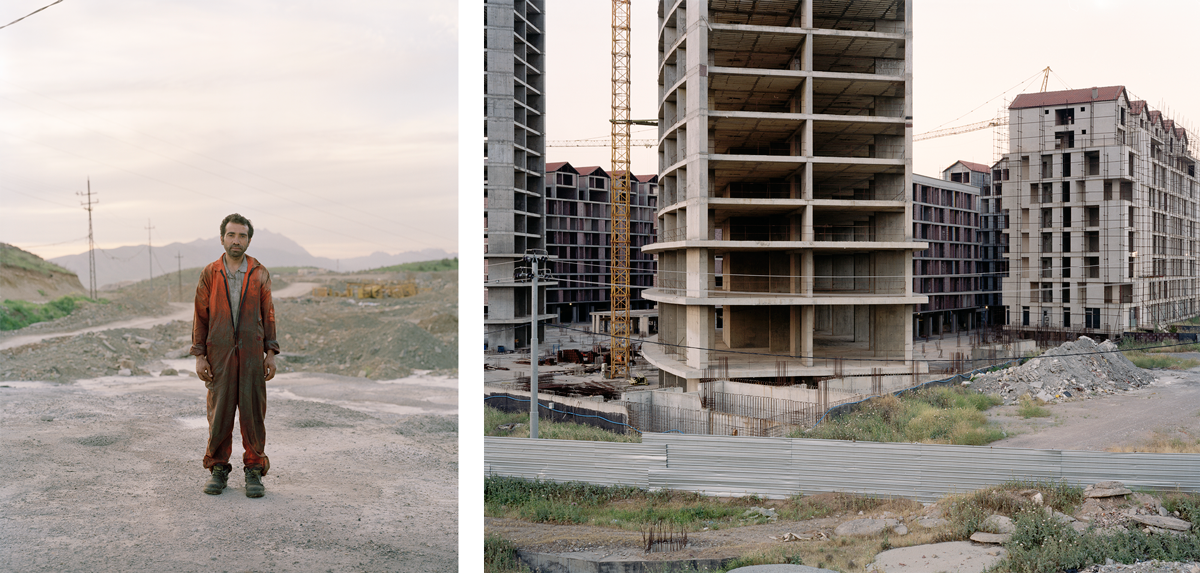
Through several visits over a period of four years, I witnessed construction sites originally designed to be luxurious residences for the upper-classes of the Kurdistan Region transform into shelters for internally displaced people and refugees fleeing the armed conflict in Iraq and Syria.
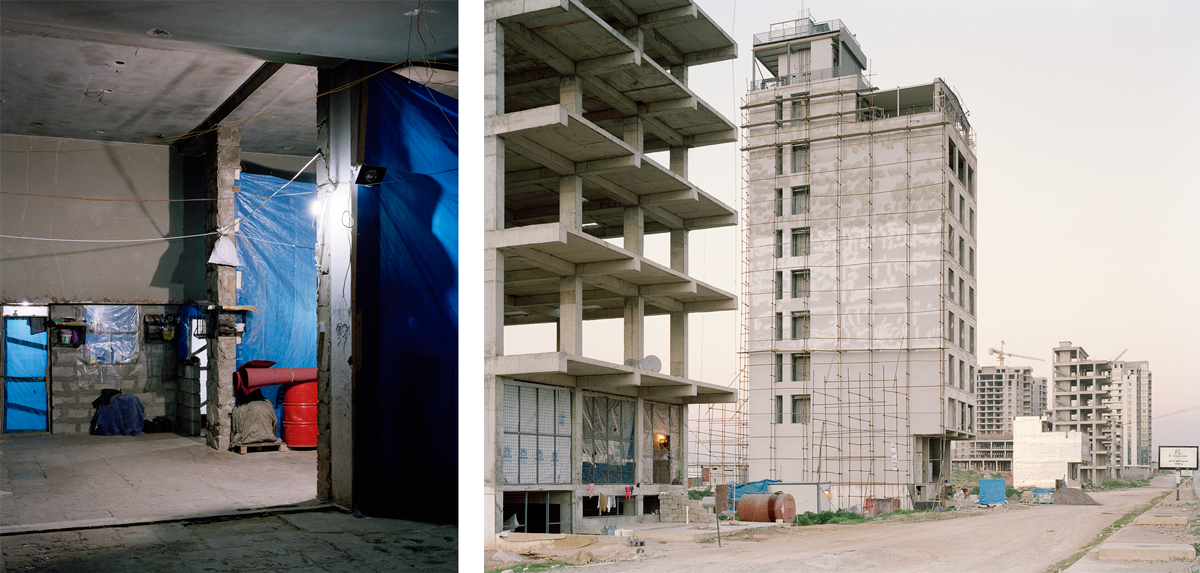
The current situation is not exceptional but is in keeping with the history of Iraq as a multi-ethnic state where displacement and resettlement of communities play an important role in the post-Ba’athist process of statebuilding and the shaping of the country’s political landscape.
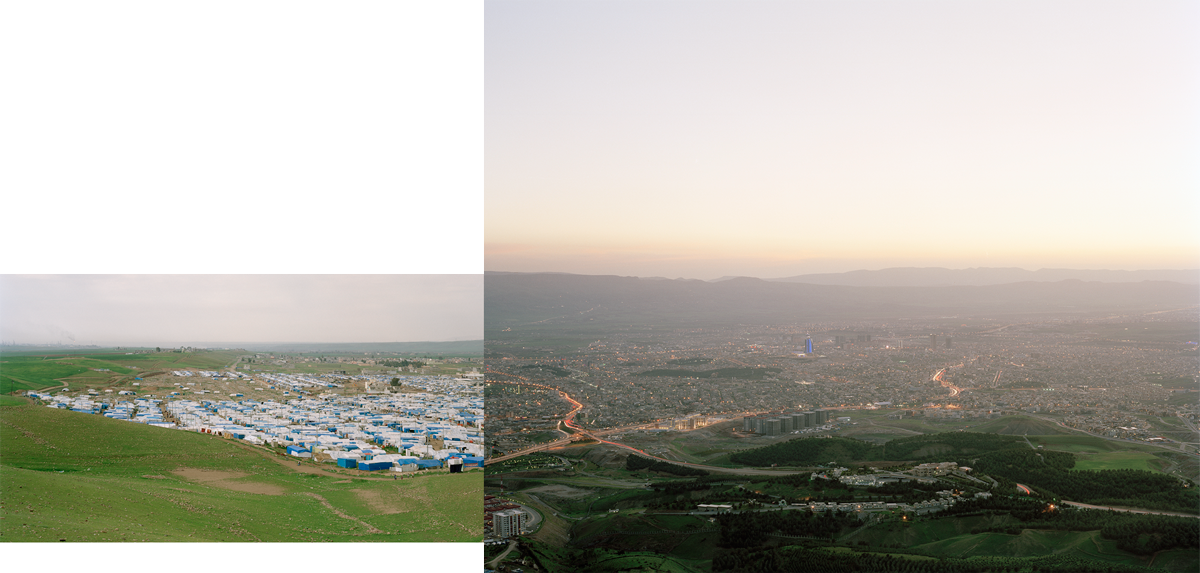
Traces of centuries of internal conflict and forced urbanisation are represented through the existence of several informal settlements that develop from the outskirts into recognised neighbourhoods along with the growth of major cities like Erbil, Sulaymaniyah or Dohuk.
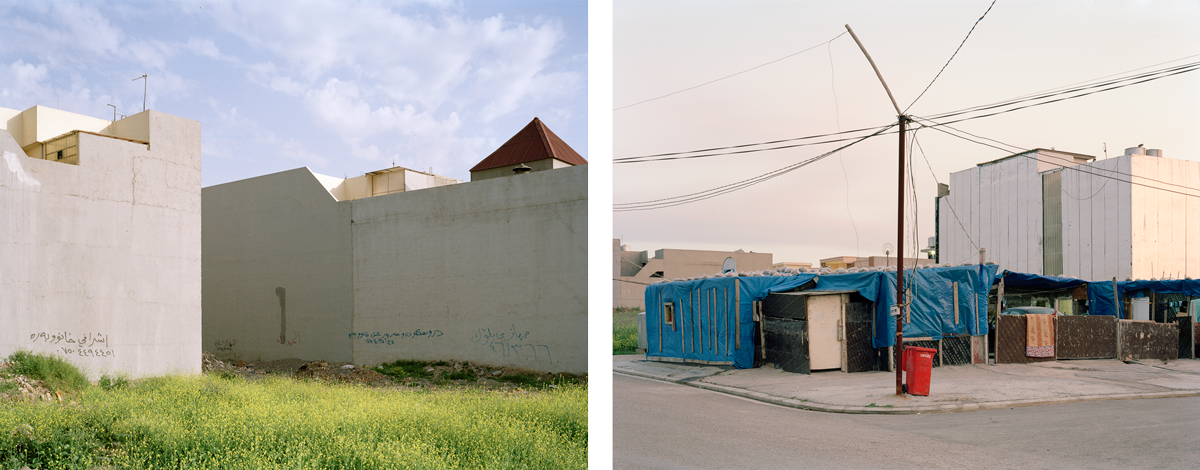
Recently, and following the failed independence referendum of September2017, my focus shifted away from an actual territory to look outside the KR-I, and accompany the visual coverage of the attempt to build a possible and sustainable state. This allow me to both investigate and understand the importance of its relation with other foreign societies in order to locate the basis of the construction of a national identity.
[jwplayer mediaid=”5731″]
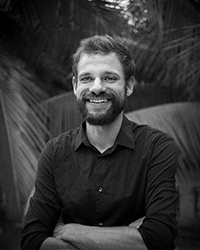 Sebastian Forkarth is an independent photographer and visual artist based in Dortmund, Germany. He studied Photography at the Bezalel Academy of Fine Arts, Jerusalem and holds a diploma from the University of Applied Sciences, Bielefeld. Since 2014, Forkarth has been lecturing and teaching photography in Germany, Israel, India and the UK. In 2017, he founded the book publishing house ‘Builder Verlag’ to create a platform that facilitates work at the intersection of research and visual-based studies.
Sebastian Forkarth is an independent photographer and visual artist based in Dortmund, Germany. He studied Photography at the Bezalel Academy of Fine Arts, Jerusalem and holds a diploma from the University of Applied Sciences, Bielefeld. Since 2014, Forkarth has been lecturing and teaching photography in Germany, Israel, India and the UK. In 2017, he founded the book publishing house ‘Builder Verlag’ to create a platform that facilitates work at the intersection of research and visual-based studies.



